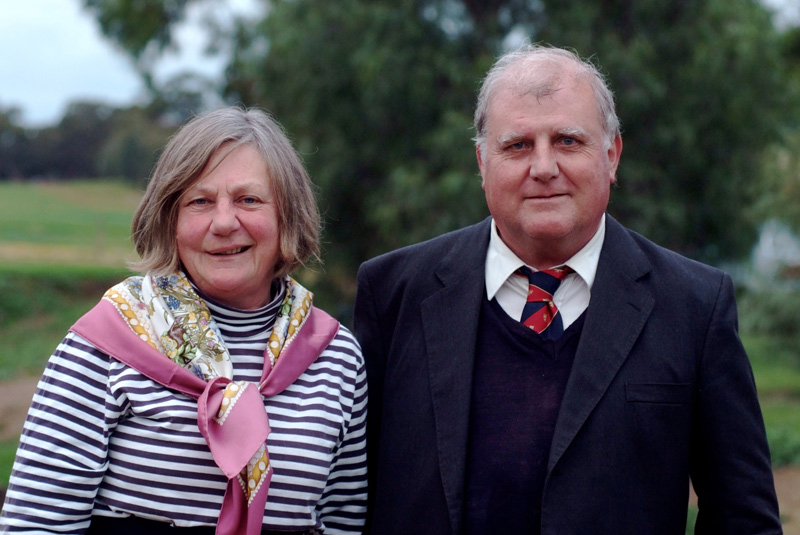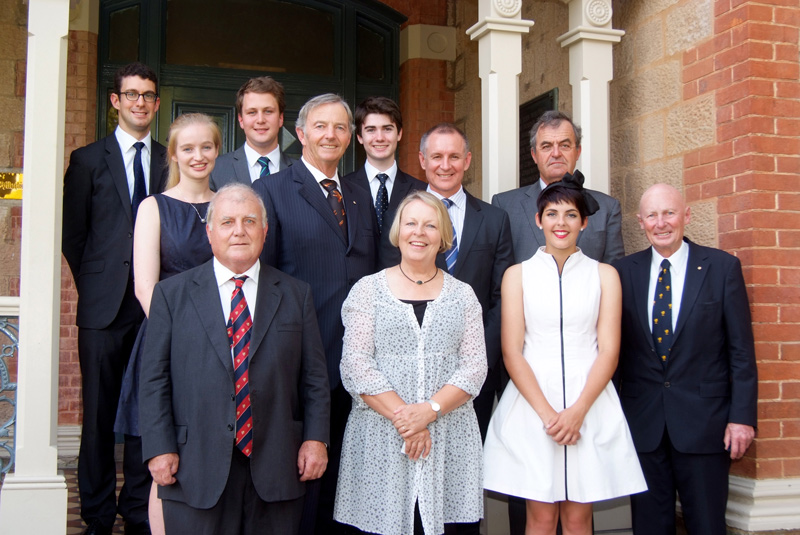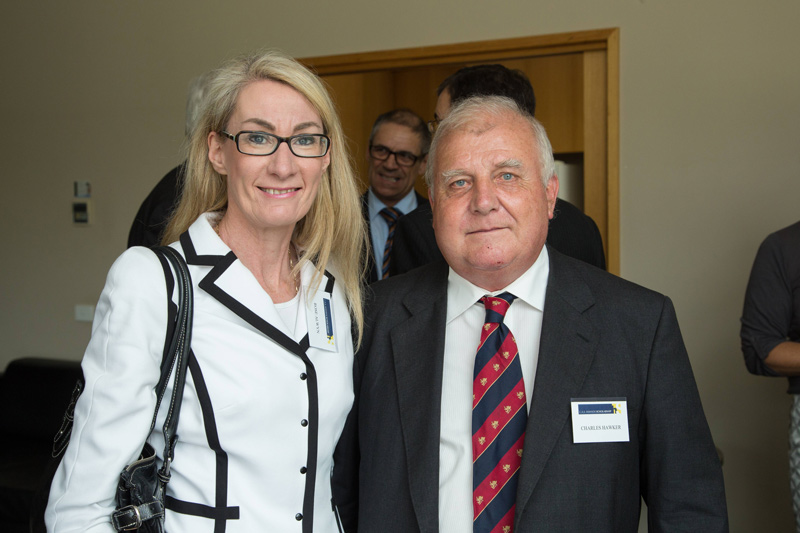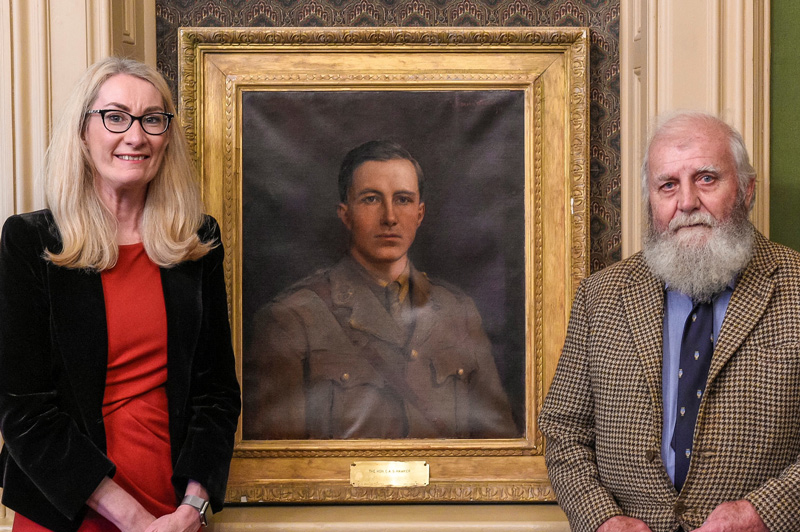September 30, 2025
This announcement is based on the eulogies given by William Monckton Synnot "Bill" and James Seymour Hawker "Jamie" at the private service held for Michael Charles Seymour Hawker "Charles" on 29 August 2025.
Michael Charles Seymour Hawker "Charles" was born on 12 March 1948 and died on 16 August 2025.
Charles was a descendant of George Charles Hawker who founded Bungaree Station near Clare in South Australia with his brothers, James and Charles.
Bungaree was the headquarters of one of Australia’s most successful sheep flocks, running 100, 000 merino sheep at a time when the country was said to "ride on the sheep’s back".
Charles was the son of Michael Seymour and Patricia Monckton Hawker (nee Synnot) of the North Bungaree Stations in Andrews and Booborowie in South Australia.
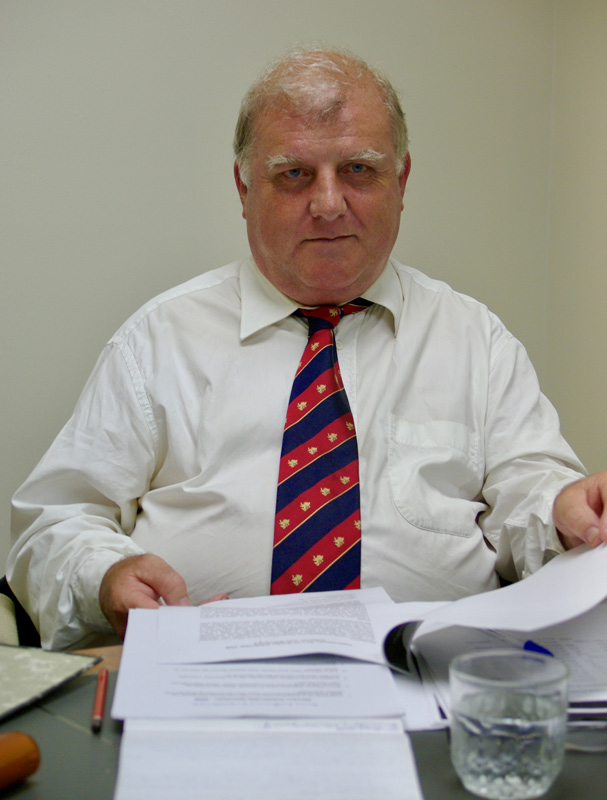
He was the only sibling of Mary and a devoted brother to her and her husband, the Very Reverend Canon Dirk van Dissel.
Charles was a cherished uncle of: Beatrix and her partner, Samuel; Michael and his wife, Sarah; and Dirk Charles van Dissel. He was also an adored great uncle of Michael Charles, James William, Dirk William and Grace Barbara van Dissel.
William Monckton Synnot "Bill" fondly remembers that "Charles and I were first cousins and of similar age, therefore we stayed with each other regularly as boys at the North Bungaree Stations and the Synnot family sheep and cattle property, Naberoo in Keith, South Australia. Then we both ended up as students together with Bruce Kemp, Richard Synnot and Dirk van Dissel at the university residential college, St Mark's College in North Adelaide, and we visited the North Bungaree stations during our university holidays."
Charles belongs to one of South Australia's great pioneering pastoral families and he came of age in the 1960s and 1970s which was a period of great change in Australia.
There were changes in the government from years of conservative rule (Liberal and Country/Nationals) to the more reformist governments of the Australian Labor Party: firstly in South Australia and then federally.
Social movements were formed about the Vietnam War, women's liberation, environmental conservation, LGBT+ rights, First Nations peoples' rights, animal rights and also significant changes occurred in technology and agriculture.
Understandably, Charles had very strong views on these changes, events and movements and he enjoyed debating them. For example, Bill Synnot vividly remembers having an intense debate with Charles during painting a wool shed at Naberoo, therefore it took them twice as long to complete the job!
The Australian wool industry had volatile times in the late 1960s and early 1970s such as coarser wools facing increased competition from synthetic fibres. Charles was a deep thinker and he was concerned for the future of pastoral wool properties. Therefore, Charles prepared himself to look after his family's pastoral interests by studying an Agricultural Science degree at University of Adelaide and completing further studies at the first agricultural college in the English-speaking world, Royal Agricultural College in Cirencester, Gloucestershire, England. Charles also worked as a Jackaroo on several pastoral properties across Australia to increase his knowledge and experience such as Chatsworth House in the Western District of Victoria.
Charles was a determined individual who could become very stubborn and this was on display at a young age when he stayed with Bill Synnot at Whale Beach in New South Wales which has a well-known surf break called The Wedge. Charles wanted to learn to body surf which was very ambitious because he could not swim. Unfortunately he was continually dumped by the surf but he did not give up and leave the water!
Over the years, many people have benefited from Charles' significant generosity. He was extremely gracious with his time and money.
Charles had a particular fondness for the Charles Allan Seymour Hawker Scholarship (known as C.A.S. Hawker Scholarship) which was established by his aunt, Mrs Lillias Needham, to support emerging Australian leaders in tertiary education through residential assistance and mentorship.
Between 1990 and 2025, almost 150 students, mainly from regional Australia have benefited from more than $7,000,000, distributed by the Trust of this scholarship.
Charles was Chairman of the C.A.S. Hawker Scholarship Trustees for several decades and he took his role of short listing and interviewing potential scholarship awardees very seriously.
Charles was also a proud student and supportive patron of St Mark’s College in North Adelaide (the university residential college) and the Waite Research Institute which stimulates and supports research and innovation for Australia’s agriculture, food and wine sectors.
When one first met Charles, he gave the impression of introverted, modest and reserved man. However, once he relaxed, he would become the life of the party. Most of us who knew him have at least one Charles Hawker story about this transformation.
Many enjoyed Charles’ great sense of humour. He didn't take himself too seriously and could always laugh at himself. An example is the sign on his door at St Mark's College which read ‘No Hawkers allowed.’
The respect and admiration so many people regarded Charles with is displayed by the many sincere and heartfelt testimonials from people after the announcement of his death.
Charles will be missed and never forgotten.
May he rest in peace.
